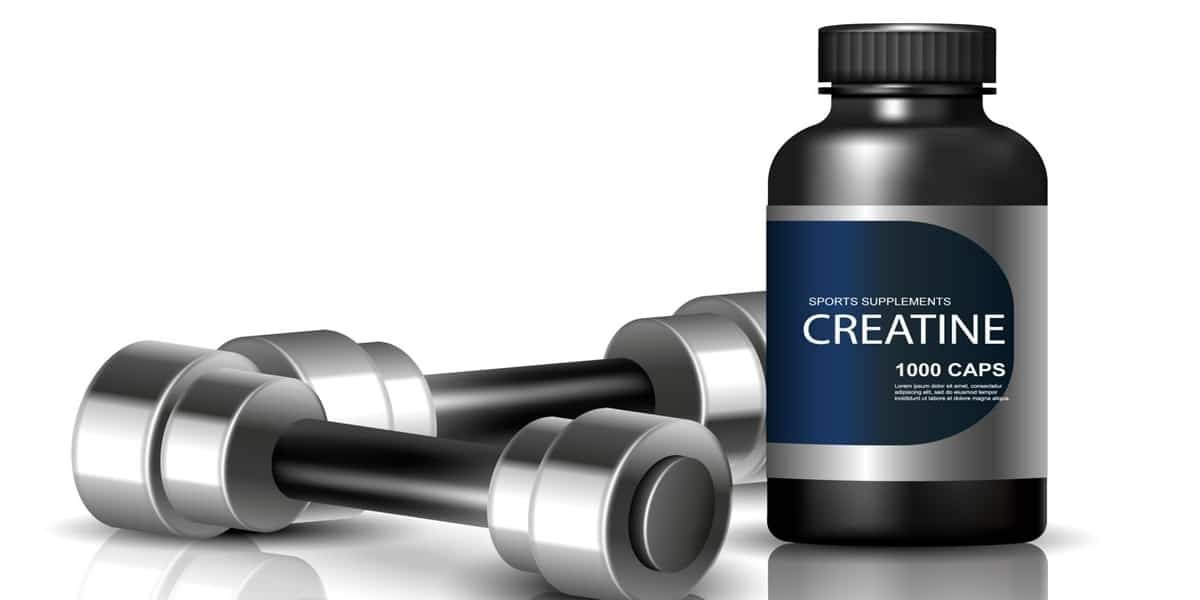Are you thinking about creatine supplements and feeling skeptical of their side effects on your kidney’s health? You’re not the only one. Creatine safety is something that gets a lot of press, particularly when it comes to your kidneys. In this article, we will investigate how creatine influences your kidneys, how much creatine is safe for kidneys, and some safety tips to make the most of it.
Understanding Creatine And Kidney Function
Before discussing how much creatine is safe for kidneys, let’s first understand the kidney function in creatine metabolism.
Creatine is a naturally occurring substance in the body, and our bodies produce small amounts of it. It is synthesized from the amino acid glycine in the liver, pancreas, and kidneys before being transported to muscle cells and stores as energy for movement and growth.
Kidneys ensure that our blood levels of creatine do not reach toxic levels. They just pee out the extra when there is too much, keeping Creatine levels perfect for stiff muscles and good health.
That being said, existing kidney issues, dehydration, and the amount of creatine taken can all influence this process. Understanding what your kidneys experience when you consume creatine is crucial for safe use.
Does creatine affect kidneys
One of the biggest concerns with creatine supplements is how they affect kidney health. Creatinine is a waste product, and taking it can temporarily increase blood levels of creatinine. Many people believe that when you notice this, it means there is kidney damage, but on most occasions, that’s not true because it’s just how our body will react to creatine consumption, and there is no need for an alarm.
The safety of creatine has been studied in more detail than any other supplement, with dozens of studies examining its long-term effects on the kidneys. Most agree it’s generally safe for people with normal kidney function and may actually protect the kidneys by reducing renal stone formation and improving overall renal functions.
However, if you suffer from kidney disease or have any form of impairment to your kidneys, creatine supplementation can be a dangerous game. The effects of this one might be more substantial, so it’s a good idea to consult with your healthcare provider before you start taking this supplement.
How Much Creatine Is Safe For Kidneys
Under normal circumstances, determining how much creatine is safe for kidneys is easy, as long as you follow the recommended intake recommendations. A daily intake of 3-5 grams is enough to improve sports performance and muscle growth without negatively affecting the kidneys.
The periods of ‘loading’ (ingesting 20 g creatine/day for one week) also appear to be free from harm. This rapidly raises your muscle’s creatine levels for rapid performance benefit. Afterward, a daily maintenance dose of 3-5 grams is recommended in order to maintain these levels.
Just remember to drink LOTS of water when taking creatine. This may increase your body’s water requirements as the kidneys work to expel this additional creatine. Try to drink 8-12 cups (2-3 liters) of water per day to help your kidneys and prevent side effects.

Precautions for Those with Kidney Conditions
It is fine for people with healthy kidneys to supplement with creatine, but there are concerns for people with kidney problems. Creatine should be taken only after checking with a doctor.
For people who have a history of kidney problems, creatine can make these conditions worse. These people may be unable to filter and remove excess creatine efficiently. Thus, it builds up in the body.
For some kidney issues, your doctor may suggest a lower creatine dose of 1-2g per day. Monitor your kidney function with routine blood tests and office visits. People who are using creatine and have kidney problems should drink a lot of water take.
Is Creatine Bad For Your Kidneys: Busting Creatine Kidneys Myths
Creatine is still a supplement some avoid because many believe that it can have serious side effects on kidney function. These are silly fallacies that need to be busted so people can decide whether or not they want to take creatine in an informed way.
It’s not uncommon to hear some people say that the supplement is harmful because it damages or, even worse, makes your kidneys fail. Nonetheless, creatine does not appear to harm kidney function in healthy people taking the recommended normal dose. If creatinine levels increased due to supplementation, it is not necessarily a sign of kidney issues.
Another thing you hear about creatine is that it causes kidney stones. There is a small risk associated with increased excretion of waste products (oxalate) linked to kidney stones. Drinking plenty and eating a healthy diet can minimize this risk.
How to Support Kidney Health When Taking Creatine Supplements
Adding creatine to your supplement routine should actively support your kidneys. A holistic approach can help support them, which, in turn, will help you enjoy the benefits of creatine. Hydration is key – since creatine increases your water needs, you’d need to drink about 2-3 liters daily to keep them metabolized and filtrate creatine away.
A good, balanced diet is also a vital factor. You should eat various fruits, veggies, whole grains, and lean proteins to give your kidneys all the necessary nutrients. Avoid eating processed foods and diets rich in salt or sugar. Exercise also matters; it boosts blood flow, lowers inflammation, and removes waste. For the best results, combine aerobic exercises with strength training.

Creatine Kidney Damage: Other Things to Consider about Safe Supplementation
Here are a few things to prevent creatine kidney damage:
- Quality of the Supplement: It is essential to choose a high-quality, well-respected creatine brand. It would be beneficial if the supplement underwent third-party testing to ensure no harmful additives could ruin your health.
- Dosage and Timing: Follow the recommended guidelines for dosing, though if your body feels unwell, adjust the amount and time you take creatine. If you’re not sure how much you should take to achieve your goals, a healthcare provider can offer sound advice.
- Other Substances: Be aware of how other supplements or medications might interact with creatine. Some drugs can affect kidney function and will not work well with creatine. Ask a healthcare provider if any substances are a concern.
Seek Professional Advice
The person best qualified to offer you helpful advice on using creatine is a healthcare advisor. Depending on which provider you have access to, you may consult a registered dietitian, certified nutritionist, naturopathic, or medical doctor. They will look at your kidney health and offer you tailor-made advice. By partnering up with any of these experts, you know you can be counseled on more than just your chances of keeping your kidneys healthy but also your diet, hydration, and well-being choices in general.
Final Thoughts
In conclusion, a safe dose of creatine for those with healthy kidneys falls within what’s recommended. However, ensure that you stay hydrated, stick to a healthy diet, and consult healthcare professionals if you have previous kidney issues or concerns about your health. By knowing how creatine works and following the guidelines, you can use it without issues and prove that the myth of creatine kidney damage is just a myth. It is possible to make healthy decisions by looking at the information from a perspective backed by facts.
Don’t forget to follow MusclePact on Facebook for even more fitness guides.
Images are from Pixabay.com
For the true alpha. Proud. Muscular. Daily motivation that hits you like four scoops of pre-workout. Maximize your jacked-ness. Follow us






